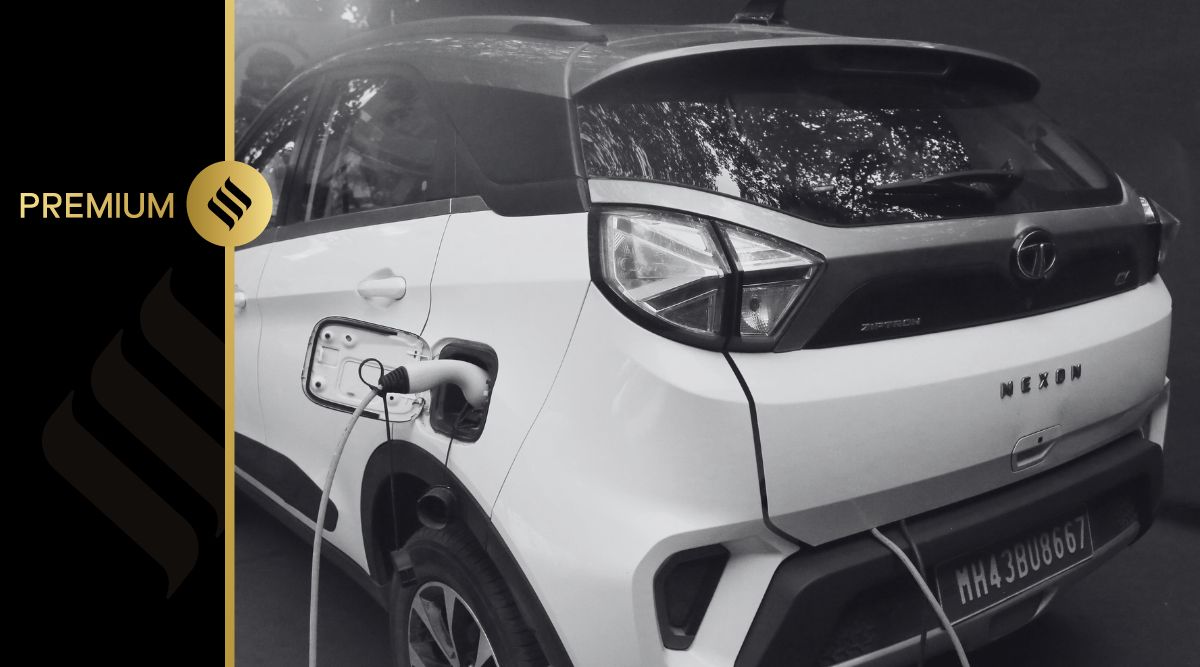In India, where there is just one charging point for 164 EVs (compared to the global average of 15.9 EVs), a handful of start-ups such as Hopcharge are vying to plug themselves in by providing door-to-door fast charging services and similar solutions.

Noida-based Mobec, which launched its door-to-door charging service to beta users two months ago, is also coming up with a mobile fast-charging station for commercial parking spaces. It raised $1 million earlier this year from Purple Stone Consulting, a Singapore-based firm. GoFuel, a pan-India doorstep diesel delivery company, is in the final stages of R&D for its planned door-to-door EV charging services and has tied up with an oil marketing company to set up public charging stations.
Hopcharge, which started commercial operations in April 2022, offers a convenient solution for EV owners who do not have home chargers installed or face difficulties in accessing a public charging point. “It’s not just about the convenience but also the reliability of getting your EV charged. Once you have booked a slot with us, charging is guaranteed unlike at public charging points where you may have to wait for users who arrived before you to finish,” says Arun Rana, co-founder and Chief Business Officer, Hopcharge.
Customers like Singh use Hopcharge’s mobile app to get their EV fast charged within 45 minutes of the charging van’s arrival, regardless of whether the car is parked in his apartment complex or the office parking lot.
“So far, EV adoption has been faster for those who can install a charger in their independent homes. People living in flats and societies, however, face difficulties in installing one,” Rana said. For instance, you need a 7kW load for a home charging station, which is difficult since most flats have a sanctioned load of 7-9 kW in NCR. The electricity grid and related local infrastructure needs major upgrades to support widespread EV adoption, he pointed out.
When a user signs up on the Hopcharge app, she can select the EV make from a list of 15 pre-listed auto companies including Tata Motors, MG Motor, Mahindra, Hyundai, and Kia. There are many subscription plans ranging from Rs 4,499 per year to Rs 49,900 per year. The most premium Hopcharge ‘Z’ plan allows a subscriber to get her EV fast charged up to 80 per cent 210 times a year. Hopcharge has 18 charging vans operating in NCR, with plans to deploy 10 more by year end.
Story continues below this ad
EV sales surge, charging infra yet to catch up
India’s EV charging infrastructure remains a sticking point in mass electric vehicle adoption, said a Tata Motors executive, who did not wish to be named. Despite various states offering incentives for the setting up of such infrastructure, the number of public charging stations set up by PSUs increased by only 39 per cent whereas EV sales jumped 168 per cent, a recent report by Customised Energy Solutions said.
EV sales in India, meanwhile, are surging, with the number of vehicle registrations crossing the 1 million-mark in the first nine months of 2023, according to data from the Ministry of Road Transport and Highways’ Vahan Dashboard. A total of 1.04 million EVs were registered with regional transport offices up to September 20, according to the dashboard.
Tech used by start-ups
Hopcharge’s proprietary technology, for which it received a patent in 2021, analyses real time data and considers “factors such as battery temperature, state of charge, state of health, and more to determine the optimal charge rate in the most suitable manner” as per documents filed with India’s patent authority.
On the energy source for charging power banks, Rana claims they are working on sourcing some portion of their electricity supply from renewable energy. “We want everything to be clean, but we also don’t see any point in delaying operations as we move towards a perfect solution. For instance, we can get energy from a solar farm but a public charger can’t do that as it is connected to the grid. We can do renewable energy much better than other charging options,” he says.
Story continues below this ad
The company manufactures its own battery chargers in Manesar and has tied up with Mahindra & Mahindra. “The EV ecosystem is realising that production of EVs and charging goes hand-in-hand. Our partnership with original equipment manufacturers like Mahindra gives customers a full stack option for e-mobility,” Rana says.
Harry Bajaj, Mobec’s CEO, said the start-up will launch mobile charging stations in the next two months. “It is essentially a charging station on wheels – it can be moved around in parking lots, either in basements or outside,” he said. The product seeks to decongest areas around charging stations by making charging infrastructure mobile, flexible, and accessible.
“Setting up EV charging stations in parking lots is a big cost to mall owners. There’s a lot of civil work to be done, setting up of power lines, etc. It takes Rs 10-15 lakh to install a single station,” Bajaj said, and claimed that Mobec’s upcoming product could be a cheaper alternative.









